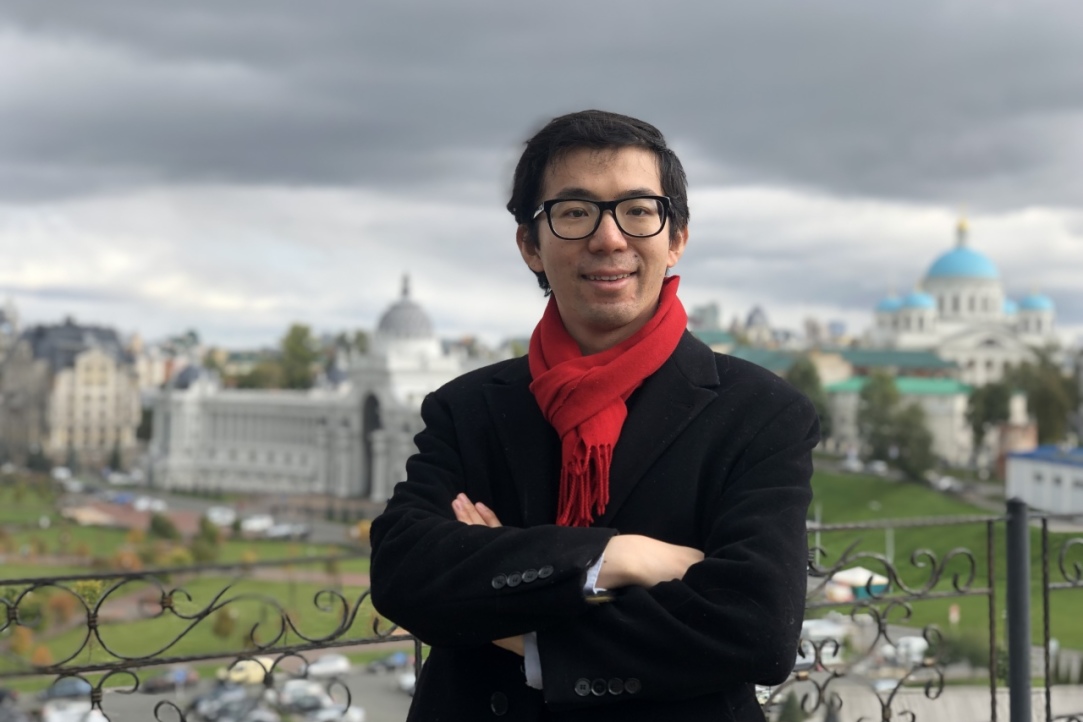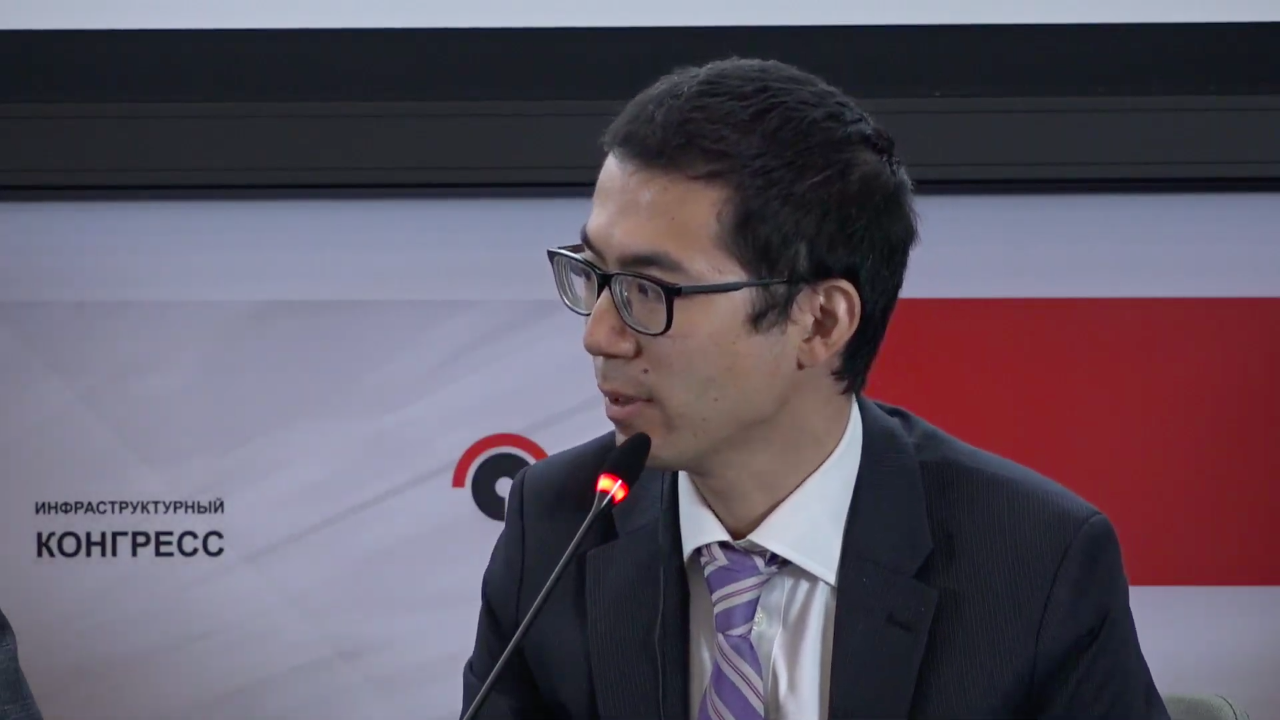HSE offers the best finance programme for foreign students in Russia

Lin Yang entered ICEF Master’s Programme in Financial Economics after completing his bachelor in the United States, and believes that Russia provides unrivalled rigorous mathematical training. Lin currently serves as Investment Director of Eurasia Region at China Railway Construction Corporation International Investment Group. He talked about the features of Liberal Arts colleges, how neurosciences help in financial forecasting, and how the ICEF alumni community is useful for work.
How did you get both university education in US and China?
I was offered a place at the mathematical department in Shandong University after winning the High School Physics Olympiad. The math department in Shandong University is ranked top 3 by China University Subject Rankings (CUSR) and thus my parents convinced me to stay in China and lay a solid foundation in mathematics instead immediately going to the US.
The mathematical training in China, similar to in Russia, is rigorous and in depth compared to interest oriented education in the United States
My two years at Shandong University turned out to be an excellent preparation. In addition to taking the most essential courses, I was also allowed to sit in third year and fourth year courses and therefore I completed most courses in math department by the end of the second year. Given I have acquired a good SAT score in high school, I decided to transfer to Beloit College in the US with all my academic credits from Shandong University.
Why did you a choose a Liberal Arts college in the US?
Liberal arts colleges inherit the liberal arts concept from Roman period. It is a well rounded education that enables personal growth and enables individuals to be qualified as a liberal citizen. In addition to absorbing the existing knowledge, the liberal arts education is more focused on learning how to solve new problems. With 3-5 people in each class, I was able to have a question and dialogue format learning experience, like Socrates’s time. I was drawn to it because I excelled at acquiring existing knowledge in my pervious education. At Beloit college, I was able to study mathematics, economics and psychology as my major and also take philosophy, political science, anthropology, physics and creative writing.
Liberal Arts colleges teach students how to learn instead of what to know
Small classes use the Socrate’s tactic to foster critical thinking through questioning, discussion and debating. By exploring issues, ideas and methods across the humanities and the arts, and the natural and social sciences, students will learn to read critically, write cogently and think broadly. In addition to how to solve problems, liberal arts education also trains students to ask which problems to solve and why,
How did you decide to go to ICEF?
During my undergraduate, I also spent one semester at University College London (UCL) as exchange student. With London being a major international hub, I made many Russian friends at UCL and LSE and they got me introduced to the Master degree of Financial Economics – a joint program between LSE and HSE.

Choosing between a career at JP Morgan, a PhD in neuroeconomics and a master in Higher School of Economics (HSE) in Russia, I decided to enroll in HSE. Being at the beginning of my 20s, I decided to explore more in my life beyond China, US and UK. Russia is the largest country in the world and the most important neighbor of China, I was drawn to have a better understanding by moving here. Thus, when I got accepted to ICEF, I decided to move here.
What do you like about studying in Russia
Being the best economic university, HSE offers rigorous training program in finance and economics. The quantitative aspect of the program can even match my experience at mathematical department. The learning curve is steep and the classes are intense. And yet, many courses remain the core of my analytical framework for financial market.
My groupmates are the best in the country and yet we all struggle a lot to excel and juggle the balance between study, work and personal development
Professors at HSE are extraordinary and are always there for us. Professor Nikitin and Professor Peiris, to name a few, have sharpened my insight into the economy and the financial market. When I heard Professor Peiris is opening a monetary economics course, I asked to take the time off at work to attend. My academic years at HSE really deepened my understanding in the essence of concepts like money, cash flows, and financial assets.
How did you benefit from your research experience?
I have always been attracted to neuroecomoics, givne my psychology background. I worked with Professor Klyucharev and his PhD student Elena on EEG-based research. Choosing between neuroeconomics and the industry wasn’t easy me, because cognition and perception is such a compelling area. However, even though I decided to join the investment industry, I still follows the most recent development in neuroeonomics.
Most of time, we are focused on the buzzing world around us and we keep studying and analyzing it. But we forget to take a look at ourselves and obtain a better picture of us. For example, our psychological bias makes us predispose to linear extrapolation. Bearing that in mind, it often helps me to take research report or forecast with a grain of salt.
How did you start you career in Russia?
Like my fellow groupmates, I started to work at Da Vinci Capital during the second year of my master’s program. I was grateful that our second year program is mostly scheduled in the evenings and weekends, which allows us to have a full time internship during the day. When Fosun International established Russian presence, I joined as a founding member at its Russian office, where I participated both in private equity and fixed income investment, in total of $300mln.

Three years ago, I moved to China Railway Construction Corporation Russia as Senior Investment Manager. Within six month, I was promoted to the head of investment division. On October 2020, I moved to China Railway Construction Corporation International Investment Group as the Investment Director of Eurasia Region. I am responsible for running major investment projects in Russia, Ukraine, Turkey, and other Eurasian countries.
Last year, we invested in a residential project on Michurinsky Avenue in Moscow and a tungsten mine in Kazakhstan. Recently, we signed a collaboration agreement on Vladivostok Ring Road with the chairwoman of the government of Primorsky Krai and we are continuingly developing our infrastructure PPP projects to help Russian regions develop its infrastructure.
I have fallen in love with Russia. I consider it my second home and want to make my contribution to make it a better place. As Russia and China develop collaboration across different sphere, I want to contribute my parts in the financial sphere. Thus, my mission is to function as part of a bridge that foster the financial network between these two countries.
Is there anything else about HSE you want to mention?
To my pleasant surprise, I found a significant part of my colleagues or partners are graduates from ICEF or HSE. A few weeks ago, I met Anatoly Braverman, the First Deputy CEO of Russian Direct Investment Fund, and as I prepare for this interview, I found out he just received an interview from ICEF a few months ago. If I knew, I would have joked about it.
I am regularly involved in the alumni events of ICEF and I frequently run into people who I work with. It is always good to be a part of a wonderful community and it is always fun to find out that the next business partner is from ICEF.